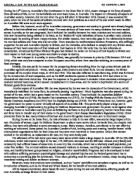Effects of WWI
After World War I and the signing of the Treaty of Versailles, Germany was militarily limited and economically devastated. German currency suffered hyper-inflation and was basically worthless by 1929. In 1930, Adolf Hitler, with the support of the National Socialist Party, was elected Chancellor of Germany. Using the frustration of his people, Hitler united Germans with his plan to restore Germany and its once great empire. By 1939, Hitler had rebuilt and mobilized the army of his Third Reich and plunged the world into war.
Hitler had aspirations to rule the world. He recognized, however, that he was not prepared to take on such a large operation alone. During Hitler’s rise to power, there was a similar fascist movement taking place in Italy. Benito Mussolini led the fascist, Black Shirt party to power in the 1930’s. This provided a diplomatic opportunity for Adolf Hitler. Both Germany and Italy had similar plans for the future of the world and their heads of state recognized this. On May 22nd, 1939, Italy and Germany signed the Pact of Steel, uniting the nations in the upcoming war. As Hitler’s war plans became closer to reality, he realized the necessity of a pact with Russia. In World War one, the ability of allies to wage war on two fronts eventually wore the German war machine down. Hitler conceded that his prime target was the Western democracies that forced the Treaty of Versailles on his nation. This meant he would have to secure his eastern front before his attack could be carried out. In August of 1939, Germany signed a non-aggression pact with Russia that not only declared that the two powers would not attack each other, but also outlined a plan to divide the conquered Eastern nations. Just two days after this pact was signed, Poland, fearing the inevitable invasion, signed a Mutual Assistance Treaty with Britain. This was a key step in bringing about a world war. Britain had many allies who, through the treaties they had signed, would be forced to commit troops if war broke out.







